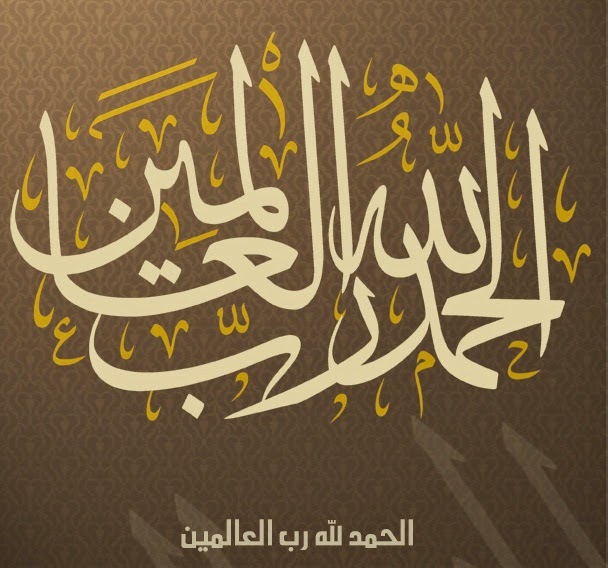Ar-Rahman and Ar-Rahim are two names derived from Ar-Rahmah (the mercy), but Rahman has more meanings that pertain to mercy than Ar-Rahim. There is a statement by Ibn Jarir that indicates that there is a consensus on this meaning. Further, Al-Qurtubi said, "The proof that these names are derived (from Ar-Rahmah), is what At-Tirmidhi recorded - and graded Sahih from `Abdur-Rahman bin `Awf that he heard the Messenger of Allah say,
(Allah the Exalted said, 'I Am Ar-Rahman. I created the Raham (womb, i.e. family relations) and derived a name for it from My Name. Hence, whoever keeps it, I will keep ties to him, and whoever severs it, I will sever ties with him.') He then said, "This is a text that indicates the derivation.'' He then said, "The Arabs denied the name Ar-Rahman, because of their ignorance about Allah and His attributes.''
Al-Qurtubi said, "It was said that both Ar-Rahman and Ar-Rahim have the same meaning, such as the words Nadman and Nadim, as Abu `Ubayd has stated. Abu `Ali Al-Farisi said, `Ar-Rahman, which is exclusively for Allah, is a name that encompasses every type of mercy that Allah has. Ar-Rahim is what effects the believers, for Allah said,
(And He is ever Rahim (merciful) to the believers.)' (33:43) Also, Ibn `Abbas said - about Ar-Rahman and Ar-Rahim, `They are two soft names, one of them is softer than the other (meaning it carries more implications of mercy).'''
Ibn Jarir said; As-Surri bin Yahya At-Tamimi narrated to me that `Uthman bin Zufar related that Al-`Azrami said about Ar-Rahman and Ar-Rahim, "He is Ar-Rahman with all creation and Ar-Rahim with the believers.'' Hence. Allah's statements,
(Then He rose over (Istawa) the Throne (in a manner that suits His majesty), Ar-Rahman) (25:59),) and,
(Ar-Rahman (Allah) rose over (Istawa) the (Mighty) Throne (in a manner that suits His majesty).) (20:5)
Allah thus mentioned the Istawa - rising over the Throne - along with His Name Ar-Rahman, to indicate that His mercy encompasses all of His creation. Allah also said,
(And He is ever Rahim (merciful) to the believers), thus encompassing the believers with His Name Ar-Rahim. They said, "This testifies to the fact that Ar-Rahman carries a broader scope of meanings pertaining to the mercy of Allah with His creation in both lives. Meanwhile, Ar-Rahim is exclusively for the believers.'' Yet, we should mention that there is a supplication that reads,
(The Rahman and the Rahim of this life and the Hereafter)
Allah's Name Ar-Rahman is exclusively His. For instance, Allah said,
(Say (O Muhammad ): "Invoke Allah or invoke Ar-Rahman (Allah), by whatever name you invoke Him (it is the same), for to Him belong the Best Names) (17:110),) and, (And ask (O Muhammad ) those of Our Messengers whom We sent before you: "Did We ever appoint alihah (gods) to be worshipped besides Ar-Rahman (Most Gracious, Allah)'') (43:45).
Further, when Musaylimah the Liar called himself the Rahman of Yamamah, Allah made him known by the name `Liar' and exposed him. Hence, whenever Musaylimah is mentioned, he is described as `the Liar'. He became an example for lying among the residents of the cities and villages and the residents of the deserts, the bedouins.
Therefore, Allah first mentioned His Name - Allah - that is exclusively His and described this Name by Ar-Rahman, which no one else is allowed to use, just as Allah said,
(Say (O Muhammad ): "Invoke Allah or invoke Ar-Rahman (Allah), by whatever name you invoke Him (it is the same), for to Him belong the Best Names.'') (17:110)
Only Musaylimah and those who followed his misguided ways described Musaylimah by Ar-Rahman.
As for Allah's Name Ar-Rahim, Allah has described others by it. For instance, Allah said,
(Verily, there has come unto you a Messenger (Muhammad ) from amongst yourselves (i.e. whom you know well). It grieves him that you should receive any injury or difficulty. He (Muhammad ) is anxious over you (to be rightly guided) for the believers (he is) kind (full of pity), and Rahim (merciful)) (9:128).
Allah has also described some of His creation using some of His other Names. For instance, Allah said,
(Verily, We have created man from Nutfah (drops) of mixed semen (sexual discharge of man and woman), in order to try him, so We made him hearer (Sami`) and seer (Basir) (76:2).
In conclusion, there are several of Allah's Names that are used as names for others besides Allah. Further, some of Allah's Names are exclusive for Allah alone, such as Allah, Ar-Rahman, Al-Khaliq (the Creator), Ar-Raziq (the Sustainer), and so forth.
Hence, Allah started the Tasmiyah (meaning, `In the Name of Allah, Most Gracious Most Merciful') with His Name, Allah, and described Himself as Ar-Rahman, (Most Gracious) which is softer and more general than Ar-Rahim. The most honorable Names are mentioned first, just as Allah did here.
















